- Biden and Democrats lead on education priorities like funding and school quality, though Democrats and Republicans are equally trusted on teaching children what they need to learn in order to succeed, which is seen as the top priority tested.
- Americans are most concerned about Democrats taking away parents’ control of what is taught at school.
- Messaging emphasizing Democrats’ historic support of education, teachers, and school mask mandates all improve favorability across a range of education issues.
Biden and Democrats Hold Advantages on Range of Education-Related Issues
Across a range of issues on education, parents trust Biden and Democrats more than Republicans: strongest issues are mask requirements (+15), valuing teachers (+13), student loan debt (+12), and school quality (+12).
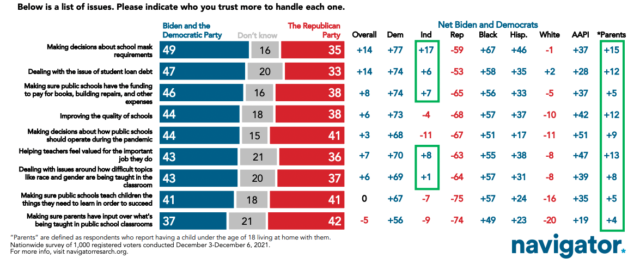
Americans Prioritize Teaching Children What They Need to Learn to Be Successful, Funding, and Quality of Schools
While Biden and the Democratic Party and the Republican Party are equally trusted on the top priority of teaching children what they need to know in order to succeed, Democrats win on top issues like funding and school quality.
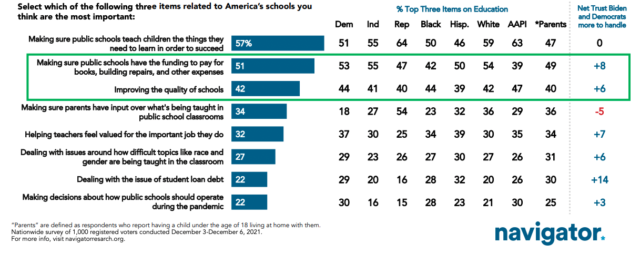
Top Concerns on Democrats’ Handling of Education Are Critical Race Theory and Parental Control of What Students Learn
While no issue is “very concerning” to more than 42% of Americans, Americans have more concerns about Democrats on parental control and critical race theory than pandemic education issues, driven largely by Republicans.
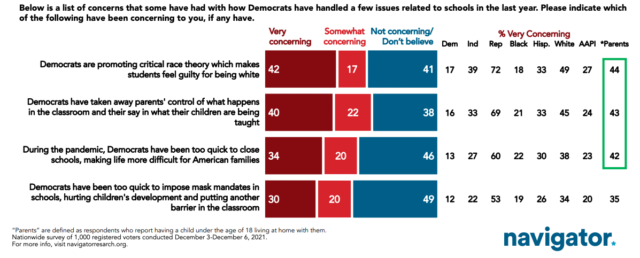
Focusing on Democrats’ Historic Support of Access to Education, Teachers, and Pandemic Safety Is Strongest
Majorities of parents say each of the education-focused items below make them more favorable to Democrats.
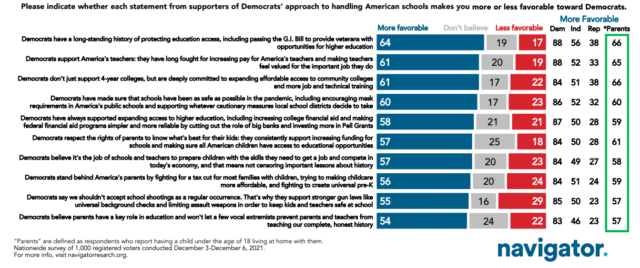
Biden and Democrats Can Make Inroads on Education Issues
While Democrats have advantages on many education issues, after messaging, they also win on ensuring children learn what they need to succeed (from 0 to +9) and are tied on making sure parents have input in the classroom (from -5 to 0). They also widen their advantages on school funding (+8 to +16) and helping teachers feel valued (+7 to +19).
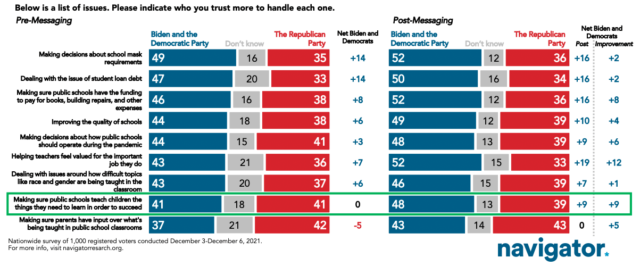
About The Study
This release features findings from a national online survey of 1,000 registered voters conducted December 3-6, 2021. Additional interviews were conducted among 99 Hispanic voters, 99 African American voters, 99 independents without a partisan lean, and 70 Asian American and Pacific Islander voters.

